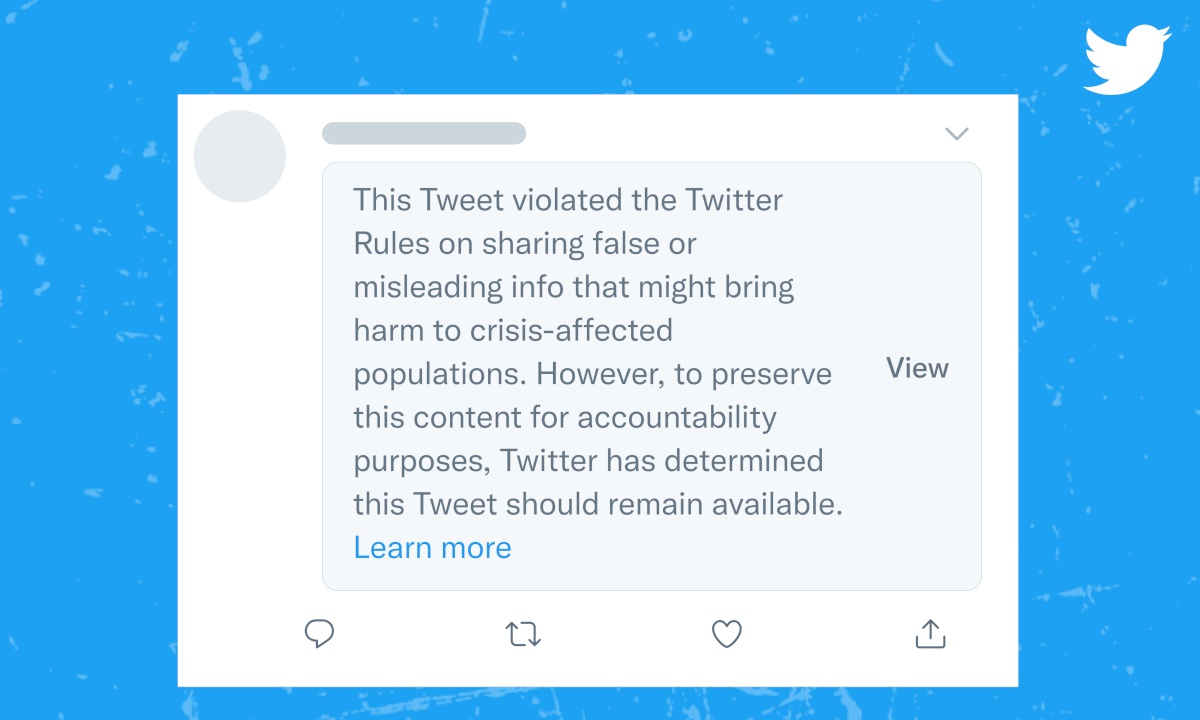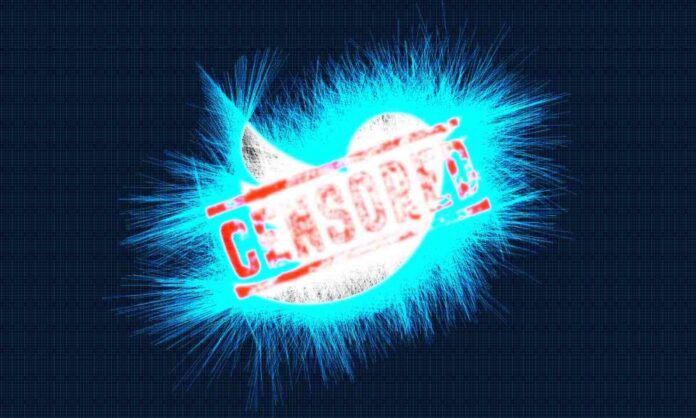Twitter remains committed to “fighting misinformation” with censorship, but with a little more broad sleeve than they have had so far: messages will no longer be deleted and users who the platform considers to be committing what they call disinformation will be expelled. With the new policy, its echo will simply be reduced and those who come across such “disinformation” will be warned of the nature of it.
As anticipated in the twitter-blogThe company has been working on a new crisis disinformation policy for more than a year with the aim of “elevating credible and authoritative information” as well as “ensuring that viral misinformation is not amplified or recommended.” This new policy will begin to unfold around armed conflicts such as what is happening in Ukraine, it will be extended to other types of crises such as the health crisis that is being experienced in India due to the covid-19 pandemic.
In essence, the intention of Twitter is apply the disinformation policy in any crisis -armed conflicts, public health emergencies and large-scale natural disasters- in which there is “a widespread threat to life, physical safety, health or basic subsistence,” they explain. “This definition is consistent with the United Nations definition of a humanitarian crisis,” they add. Thus, those responsible for determining what is disinformation or not, will be “world experts and human rights organizations.”
Nothing new under the sun of Twitter, except that the deletion of messages and the expulsion of users will not happen right away, as in fact happens in other areas of the social network, where a mere coordinated complaint between hostile groups can end quickly with the account of any wayward user. In a similar way to the treatment of health information in a pandemic, the first thing will be to warn of potentially harmful content with a message.

Which translates as “this tweet violated Twitter’s rules on spreading false or misleading information that could cause harm to populations affected by the crisis. However, to preserve this content for accountability purposes, Twitter has determined that this tweet must remain available.”
Some of the examples offered by Twitter about messages that violate the disinformation policy in crisis seem to fit the conflict unleashed from the Russian invasion of Ukraine like a glove:
- False coverage or reports of events, or information that mischaracterizes conditions on the ground as a conflict evolves;
- False allegations about the use of force, incursions into territorial sovereignty or the use of weapons;
- Provably false or misleading allegations of war crimes or mass atrocities against specific populations;
- False information about the response of the international community, sanctions, defensive actions or humanitarian operations.
The funny thing is that all those red lines are not nothing new: the manifest censorship they have suffered from media outlets such as Russia Today (RT) has derived from them, whose Twitter accounts were blocked long ago (in the case of RT, however, the censorship has been generalized and most countries in the EU have banned their access). Of course, RT is a medium related to the Russian regime and prone to informational bias, but this is a common characteristic throughout the international media apparatus.
Be that as it may, nothing is going to change much. Twitter has spent years delegating content censorship to the experts of its choice to the detriment of others and will continue to do so, now in compliance with more orderly guidelines, but equally prone to arbitrariness. At least, until Elon Musk prevents it… if you can do such a thing. For now it’s all much ado about nothing.













